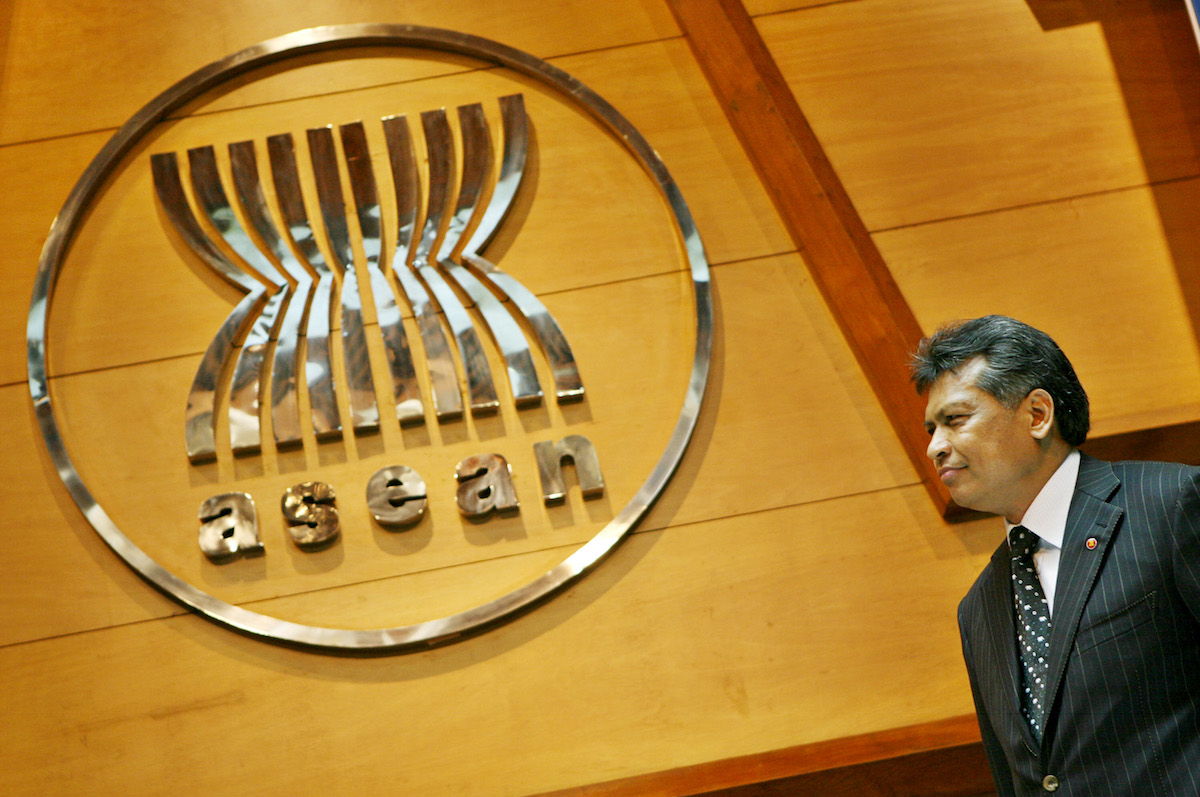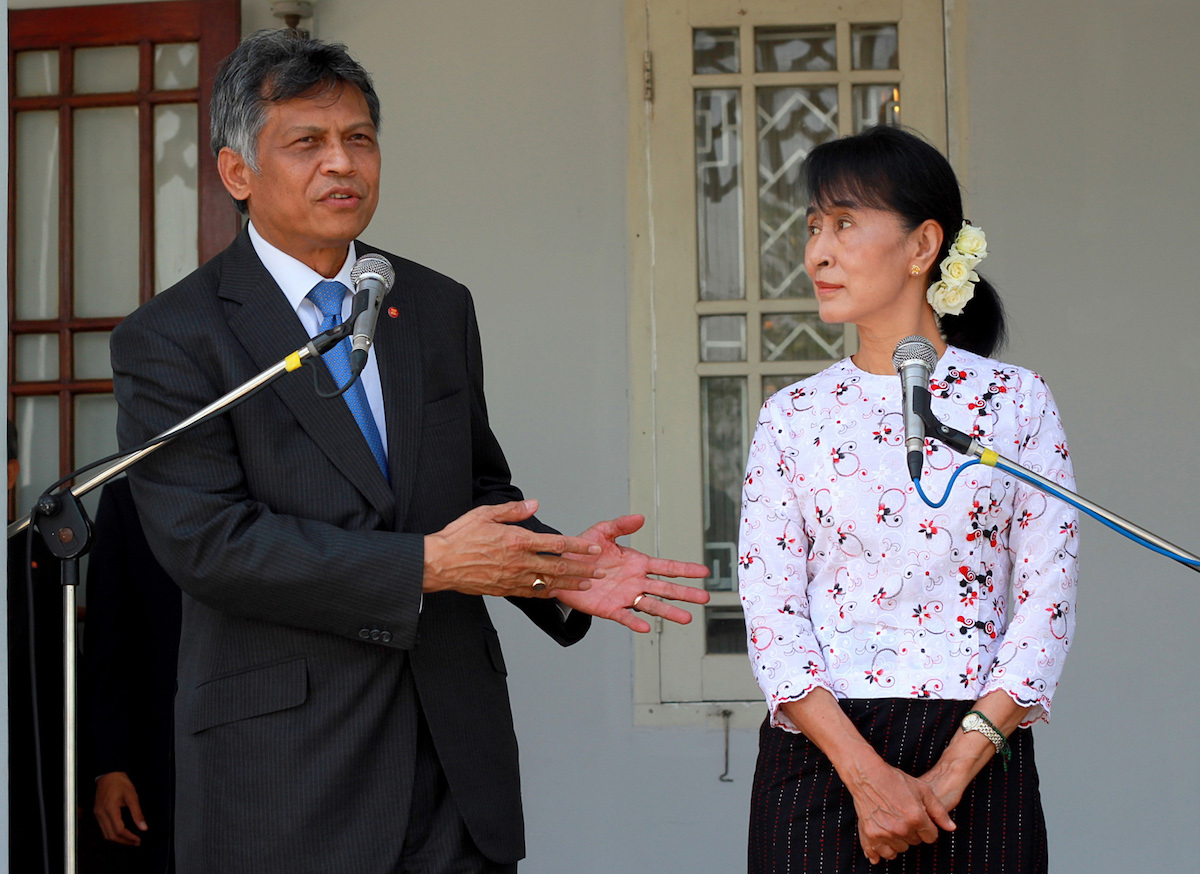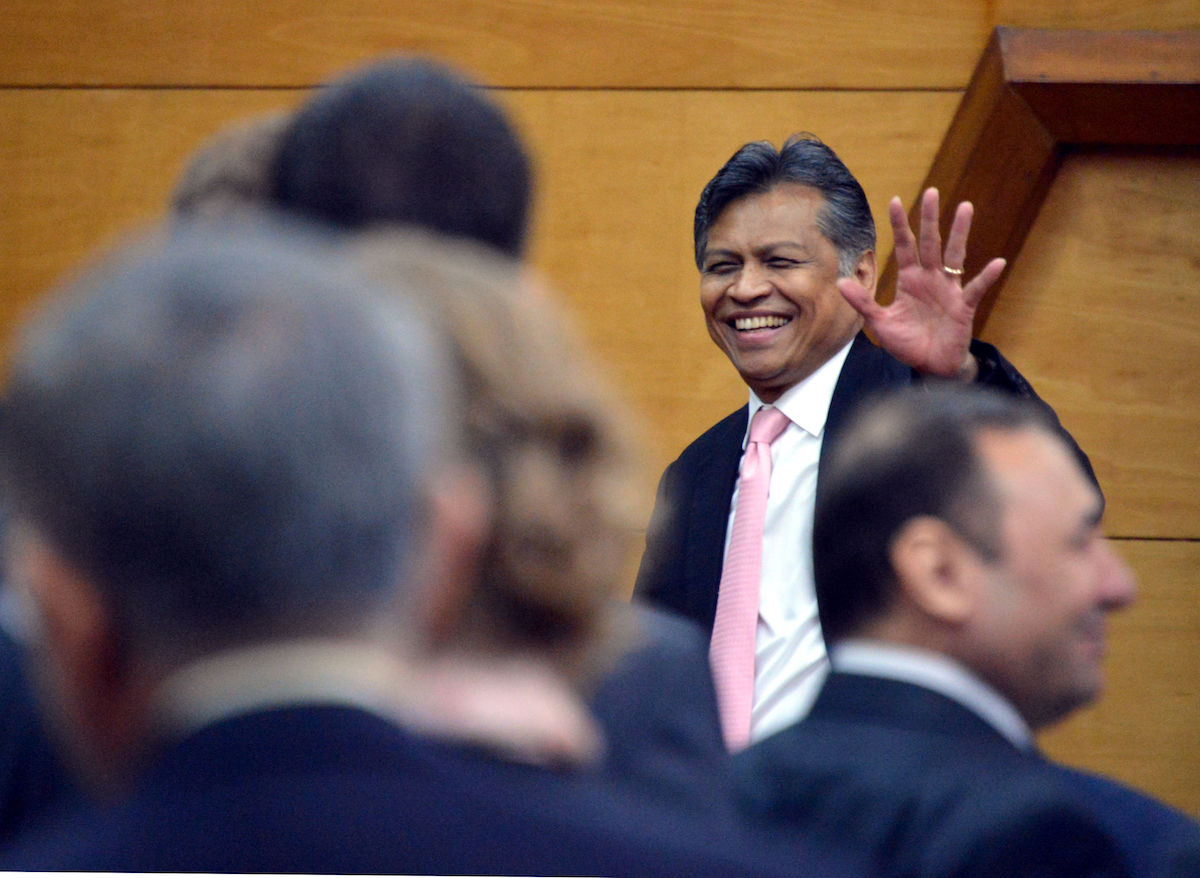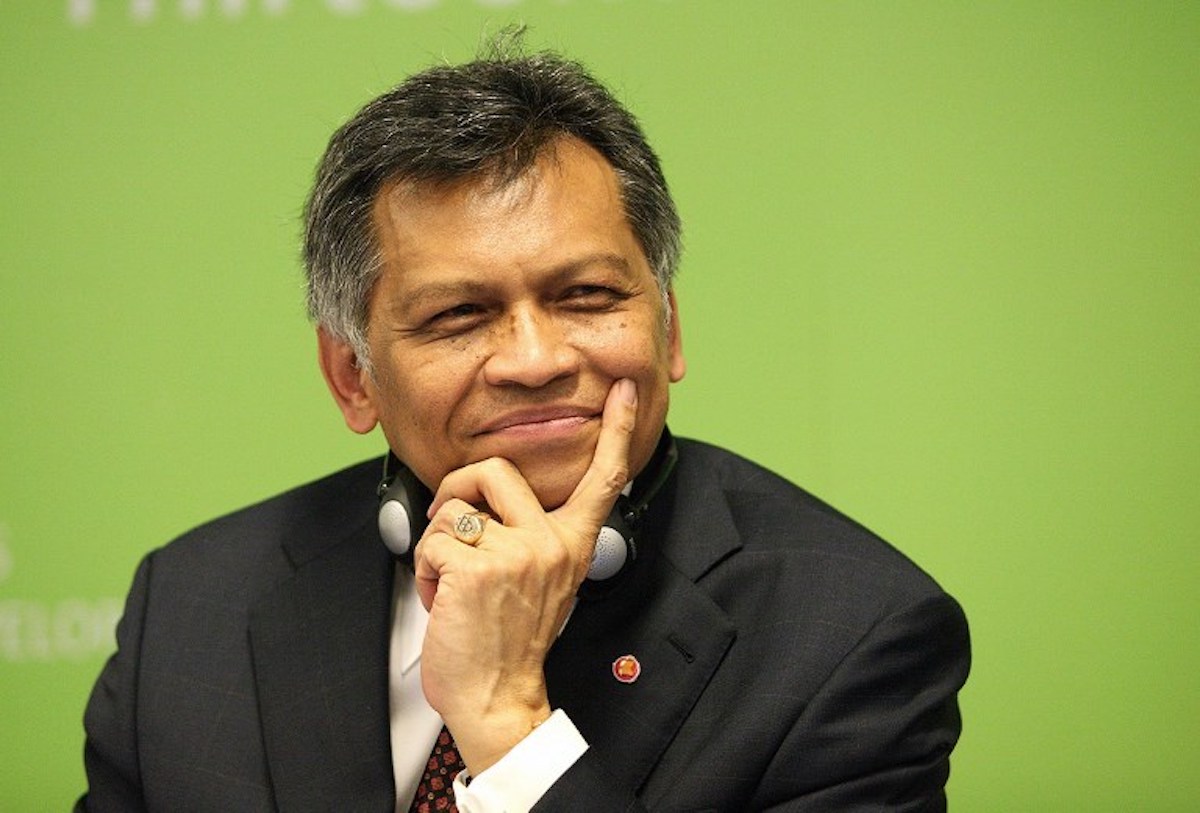On Thursday, the 30th of November 2017, the most prolific Secretary General of the Association of Southeast Asian Nations (ASEAN) passed away at the age of 68.
Surin Pitsuwan who assumed the position from 1 January 2008 until 1 January 2013 died of an acute heart attack. He collapsed moments before he was set to deliver a speech in Bangkok and was promptly rushed to Ramkhamhaeng Hospital. He was pronounced dead not long after.
The remains of the Thai statesman were laid to rest in a Muslim cemetery close to the Tha It Mosque in Nonthaburi, Thailand – not far from where he resided.
The outpouring of grief, came soon after news of his death surfaced. Pitsuwan was well respected in the diplomatic circles where he continued to play an active role long after he retired from his position as ASEAN Secretary General. The Thai Foreign Ministry and ASEAN Secretariat conveyed their deepest condolences to his family and many others who were close to him penned emotional op-eds about the figure whom they always held close to their hearts.
In memory of Surin Pitsuwan’s passing, The ASEAN Post would like to take readers on a journey of this man’s illustrious life and highlight some of the many contributions he made to his country and region.
Early life
He was born on 28 October 1949 in Muang district located in southern Thailand. He graduated from Claremont College in the United States with a degree in political science in 1972. He spent time as a researcher soon after – attached with the Rockefeller Fellowship Program, Ford Foundation and Thai Studies Institute until 1978. He then graduated with a Master’s degree from Harvard University and pursued research at the American University in Cairo before returning to Harvard and graduating with a Ph.D in 1982.
In 1986, he ventured into politics as a candidate of the Democrat Party and won. He represented Nakhon Si Thammarat – his hometown – where he won all subsequent elections until 2005.
Pitsuwan was poised to be Secretary General of the United Nations after Kofi Annan but was reportedly not supported by the Thai government which side-lined him due to his political inclinations with the Democracy party – the main opposition party in Thailand.
However, in 2007, he was endorsed by the Thai government to be nominated as Thailand’s candidate for ASEAN Secretary General. He succeeded Singaporean diplomat Ong Keng Yong and was the first person with a strong political background to assume the role.

In this picture taken on 7 January 2008, then newly appointed secretary General of the Association of Southeast Asian Nations (ASEAN) Surin Pitsuwan looks on during a ceremony in Jakarta.
Breaking the ‘non-interference’ wall
Under Pitsuwan’s stewardship of ASEAN, the association took strides to shake off the ‘NATO (No action, talk only)’ label. His ways often seemed to contradict the ASEAN norm of non-interference but he was never afraid to speak his mind on domestic matters of member states which could have regional repercussions.
Pitsuwan had an integral role to play in opening up Myanmar to the world and credited The ASEAN Way of providing the nation time and space to nurture instead of sanctioning it for every purportedly wrong move it makes. Nevertheless, he was vocal about internal strife in Myanmar – particularly with regards to the mistreatment of Rohingya Muslims.
“Myanmar believes it is their internal matter. But your internal matter could be ours the next day if you are not careful,” he once said in 2012 referencing the now sprawling humanitarian crisis unfolding in Myanmar's Rakhine State.

In this picture taken on February 22, 2012, Association of Southeast Asian Nations (ASEAN) Secretary General Surin Pitsuwan (L) gestures as he speak to the media next to Myanmar democracy leader Aung San Suu Kyi (R) outside her house in Yangon.
Not only was Pitsuwan a bold leader, he was also dynamic in his ideas relating to ASEAN’s position in the world order. The hotly contested South China Sea dispute was one area of interest that he never shied away from speaking on. He was very keen on promoting a two-pronged approach to resolution where claimant states put aside their claims of sovereignty and jointly develop the area so that its benefits can be shared equally.
His passion for the region is most apparent when he lends his ideas on ways to improve and strengthen regional integration. Pitsuwan had also often advocated for a stronger ASEAN Secretariat which would be able to help smaller and less develop nations that hold the chairmanship position. One of his constant worries was that ASEAN risked descending into a “two-tier” organisation of developed and less developed members. He had always wished that countries didn’t “keep to themselves” as much as it only dampened the speed of regional integration.
An eternal passion for ASEAN
As a polished diplomat, Pitsuwan continued to dabble in diplomatic circles long after retirement from ASEAN. He is often invited to speak in conferences and share his wealth of experiences and know how vis-à-vis regional issues.
At one such event – marking ASEAN’s 50th anniversary – weeks before his death, Pitsuwan lauded the organisation for its resilience and urged member nations to cooperate more in times where “the era of multilateralism is disappearing.”
Pitsuwan was a visionary leader of ASEAN. He never stopped believing in the strength that ASEAN had which accompanied its diversity. The differences in opinions and ideas were not a stumbling block to him, but an opportunity to show the world the ASEAN Way of integration. He was never one to shy away from defending the regional grouping and raising its profile in the international foray.
Hidetoshi Nishimura, President of the Economic Research Institute for ASEAN and East Asia (ERIA) – which was established during Pitsuwan’s tenure in collaboration with the Japanese government – once called him “a true leader of ASEAN.”
“Even well after his term as secretary-general ended, he gave himself fully to promoting the dream of a peaceful and prosperous region where every person could be a member of a caring and sharing community – a people-oriented ASEAN,” Nishimura said.
Surin Pitsuwan may have left us but the legacy of his deeds will remain. His ambitions and finesse will continue to guide the path for future ASEAN leaders as the region enters more challenging times.
Though he will be dearly missed, he will never be forgotten.

In this picture taken on January 9, 2013, former Association of Southeast Asian Nation (ASEAN) Secretary General Surin Pitsuwan waves to his successor Le Luong Minh (not pictured) after the secretary general of ASEAN handover ceremony at ASEAN secretariat in Jakarta.
Recommended stories:
